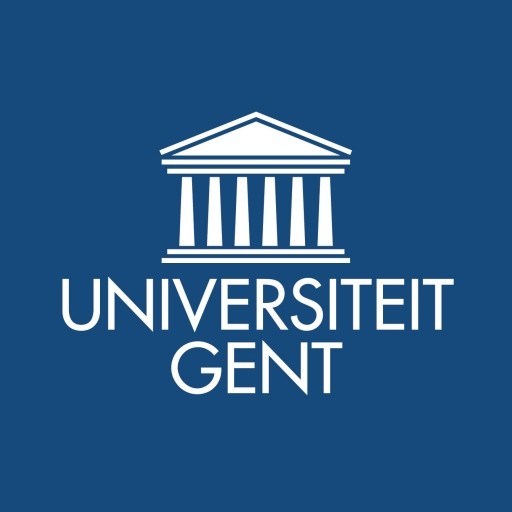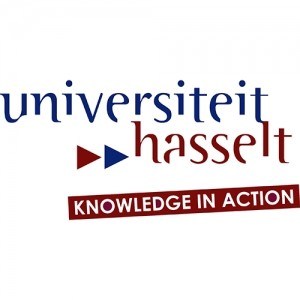Photos of university / #thefoundry_ugent
The Master of Science in Bioscience Engineering at Ghent University is a comprehensive and multidisciplinary program designed to equip students with the knowledge and skills necessary to address complex biological and environmental challenges. This program offers a unique blend of biology, engineering, and environmental sciences, enabling graduates to develop innovative solutions in areas such as sustainable agriculture, biotechnology, renewable energy, and environmental management. The curriculum is structured to provide both foundational theoretical knowledge and practical hands-on experience through laboratory work, field projects, and internships. Students will delve into subjects such as molecular biology, microbiology, bioinformatics, bioprocess engineering, ecological engineering, and quality management. The program emphasizes the principles of sustainable development and responsible innovation, preparing graduates for careers in research, industry, consultancy, or further academic study. Ghent University’s strong partnerships with industry and research institutions offer students opportunities to participate in cutting-edge projects and gain valuable real-world experience. A flexible study path allows students to tailor their education according to their interests and career goals, including specializations in areas like bioprocess engineering, environmental technology, or innovation management. Graduates of the Bioscience Engineering program are well-equipped to contribute to society’s transition towards sustainable development by applying their expertise in biological sciences and engineering principles. The program is taught by a team of highly qualified lecturers and researchers actively involved in international research projects, ensuring that students receive a high-quality education aligned with current scientific and technological advancements. Upon completing the program, graduates will have developed critical thinking, problem-solving capabilities, and a thorough understanding of bioscience applications, preparing them to be future leaders in the bioscience sector. The MSc in Bioscience Engineering at Ghent University is an excellent choice for students passionate about biology, engineering, and sustainability, eager to make a positive impact on the world through innovation and scientific excellence.
General Courses
- Statistical Genomics
- Applied High-throughput Analysis
- Genome Biology
- Integrative Biology
- Design Project
Courses Related to the Main Subject
- Industrial Biotechnology
- Bio-imaging and Image Informatics
- Process Engineering 2 [nl]
- Analysis of High Dimensional Data
- Process Engineering [nl]
- Process Technology [nl]
- Modelling and Simulation of Biosystems [nl]
- Plant Biotechnology
- Molecular Techniques for Microbial Analysis
- Protein Chemistry
- Biological databases
- Programming for Bioinformatics
- Selected Topics in Mathematical Optimization
- Bioinformatics Algorithms
- Predictive Modelling
Requirements
- Applicants must have at least a Bachelor's degree of min. 3 year with good overall scores (at least a second class upper or equivalent).
- Applicants must be able to demonstrate through their transcripts basic science training in at least 5 out of 7 of the following fields: (i) Mathematics, including basic statistics; (ii) Physics; (iii) Chemistry; (iv) Biochemistry; (v) Biology; (vi) Microbiology; (vii) Engineering. Some background in aquaculture is recommended too.
- Language requirements:
The applicant must be proficient in the language of the course or training programme, i.e. English. The English language proficiency can be met by providing a certificate (validity of 5 years) of one of the following tests: (TOEFL/IELTS predictive tests and TOEIC will not be accepted)
- TOEFL IBT 80
- TOEFL PBT 550
- ACADEMIC IELTS 6,5 overall score with a min. of 6 for writing
- CEFR B2 Issued by a European university language centre
- ESOL CAMBRIDGE English CAE (Advanced)
Scholarships
- VLIR-UOS Scholarships
- Master grants
- University Development Cooperation Programme
The Master of Science in Bioscience Engineering at Ghent University is a comprehensive advanced degree program designed to prepare students for a wide range of careers in the biosciences sector. This program combines in-depth theoretical knowledge with practical skills, emphasizing innovative research and sustainable solutions in the biological sciences. Students gain a solid foundation in areas such as microbiology, biotechnology, ecology, genetics, and biochemistry, and have the opportunity to specialize in specific fields like environmental biotechnology, food biotechnology, or industrial biosciences. The curriculum includes core courses, elective modules, and research projects, often involving collaboration with industry partners or research institutes, allowing students to apply their knowledge in real-world contexts. Through laboratory work, field studies, and project management, students develop critical thinking, problem-solving, and communication skills essential for their professional development. The program also promotes an interdisciplinary approach, fostering competencies in data analysis, bioinformatics, and sustainable resource management. Graduates of the Bioscience Engineering program find employment in various sectors, including biotechnology companies, environmental consultancy firms, pharmaceutical industries, research institutions, and governmental agencies. The program is delivered in English and attracts international students, contributing to a diverse academic community. Furthermore, Ghent University supports students with modern facilities, active research groups, and international exchange programs that enhance the educational experience. Graduates are well-equipped to continue with doctoral studies or to enter the workforce as experts capable of addressing global challenges related to health, environment, and sustainable development.



